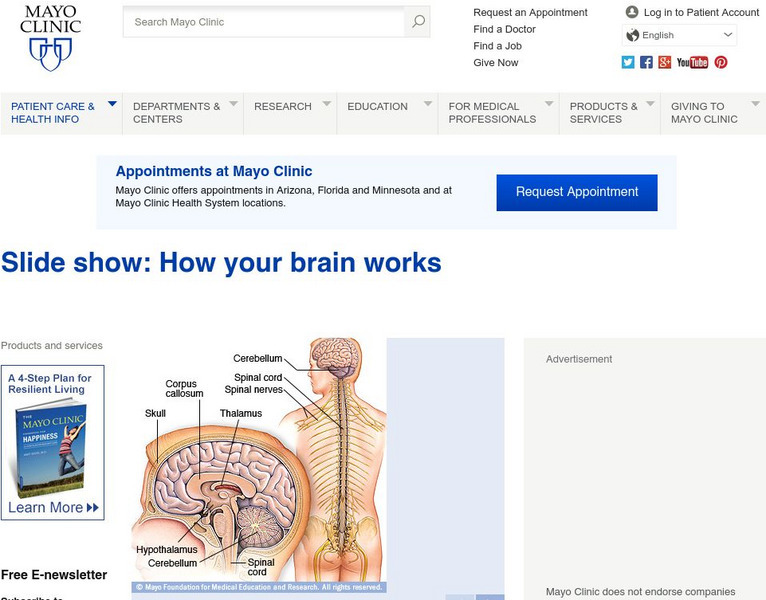Hi, what do you want to do?
University of Washington
The Senses
This site has a collection of learning activities, games, experiments, and lesson plans on the five senses. Organized by grade level and topic, this site is packed with an assortment of interactive and engaging activities, that would...
TeachEngineering
Teach Engineering: Humans Are Like Robots
Four lessons related to robots and people present students with life sciences concepts related to the human body (including brain, nervous systems and muscles), introduced through engineering devices and subjects (including computers,...
TeachEngineering
Teach Engineering: Human and Robot Sensors
Students are provided with a rigorous background in human "sensors" (including information on the main five senses, sensor anatomies, and nervous system process) and their engineering equivalents, setting the stage for three associated...
Arizona State University
Arizona State University School of Life Sciences: A Nervous Experiment
How do you know when your hand touches something? How do you know if something brushes against your shoulder? Think about your fingertip, arm, and back. In which of these places might your nerves be closer together? Review the concept of...
PBS
Pbs Teachers: Changing Your Mind: Nerve Cell Infomercials
Build nerve cell models in cooperative groups, and articulate the structure and function of nerve cells to explore the nervous system. Describe specific elements of human physiology by "advertising" the nervous system in nerve cell...
BioEd Online
Bio Ed Online: Brain Chemistry Post Assessment
The human brain is complex. Messages within the brain and the rest of the nervous system are conducted by cells called neurons. Drugs and other substances can interfere with or modify the transmission of messages between neurons. In this...
University of Minnesota
University of Minnesota: Anatomy Image Bank
Hundreds of anatomy diagrams for classroom or medical use. Each image represented is a simple black-and-white professional drawing of a specific part of the human body.
TeachEngineering
Teach Engineering: Brain Is a Computer
Students learn about the similarities between the human brain and its engineering counterpart, the computer. Since students work with computers routinely, this comparison strengthens their understanding of both how the brain works and...
TeachEngineering
Teach Engineering: How Do Sensors Work?
Through six lesson/activity sets, students learn about the functioning of sensors, both human and robotic
NASA
Nasa: The Brain in Space
This educators guide shows students how the body's brain, spinal cord and network of nerves control the activities of animals and humans.
BBC
Bbc: Scotland: Brainsmart
Beginners guide to how the human brain works and suggestions for taking care of it, memorizing numbers, remembering names, managing stress, and more. Take a trip inside and see what happens when it learns something new.
Other
Marine Biological Laboratory: Why Study Marine Organisms for Biomedical Research
Descriptions of various research projects using marine organisms that have direct impact on medical research. The resource has a perspective on how medicine makes progress.
Other
A Look Inside: Human Body
Learn how our body works at this personal site from a fourth grade teacher. Colorful graphics and lots of fun facts.
Harvard University
Harvard Medicine: The Whole Brain
Detailed color images of the human brain, both normal and with various brain diseases, including Alzheimer's, Huntington's, multiple sclerosis, stroke, and AIDS dementia.
Other
Society for Neuroscience: Brain Facts [Pdf]
This is a publication on the human brain and how it works. Gives details on the neuron, how the senses interact with the brain and much more. PDF (requires Adobe Reader).
McGraw Hill
Glencoe: Biology: The Animal Body and Principles of Regulation Pretest
Students have the opportunity to take this five question pretest to assess their knowledge of the principles of regulation in the human body.
National Geographic Kids
National Geographic Kids: Quiz Whiz: The Brain
Take this interactive, ten-question quiz about the human brain. Read facts about this important organ after each questions is answered, and then get your score.
Other
Posit Science: The Brain 101
Learn about the structure of the human brain with this interactive diagram. Also, find out about neurons, message transmission, and other factors that affect brain function.
CK-12 Foundation
Ck 12: Life Science: 11.41 Nerve Impulse
Understand the structure and function of a nerve cell, and how messages are transmitted throughout the human body.
TeachEngineering
Teach Engineering: Our Bodies Have Computers and Sensors
Students learn about the human body's system components, specifically its sensory systems, nervous system and brain, while comparing them to robot system components, such as sensors and computers. The unit's life sciences-to-engineering...
Khan Academy
Khan Academy: Q&a: Neuron Depolarization, Hyperpolarization, & Action Potentials
Khan Academy answers a question about hyperpolarization and depolarization with a written explanation and links to helpful videos.
Mayo Clinic
Mayo Clinic: Slide Show: How Your Brain Works
Eight slides demonstrate the human brain. Please know that the descriptive narrative is fairly short for each slide subject.
Other
Dana Sourcebook of Brain Science: It's Mindboggling!
Look through this online pamphlet to find brain exercises as well as explanations of how the brain works. Very complete and fun to read.
Curated OER
Human
This site provides a great deal of information about the nervous system. In particular, the tools used to teach about the brain are helpful and effective.






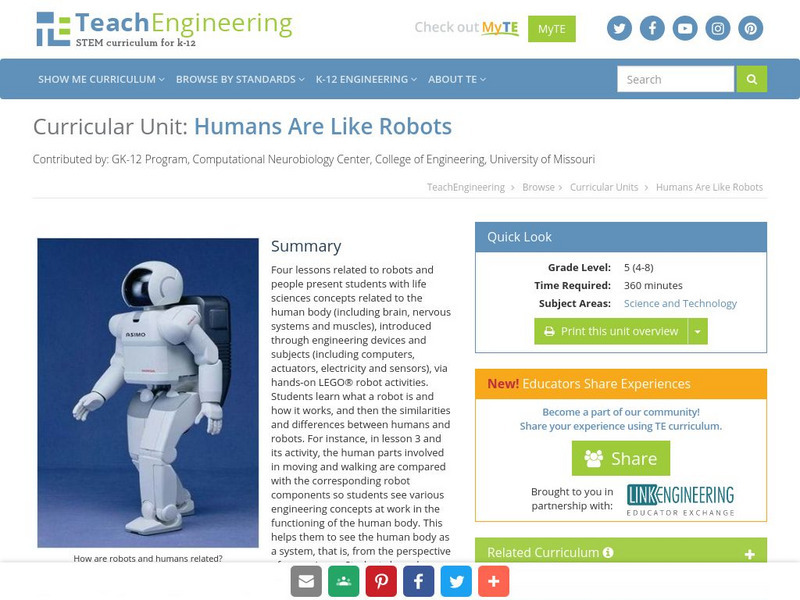

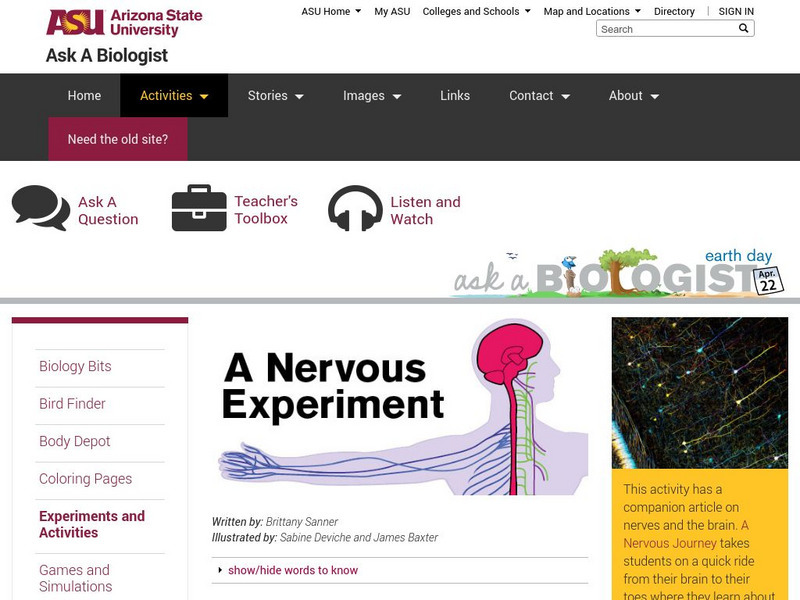

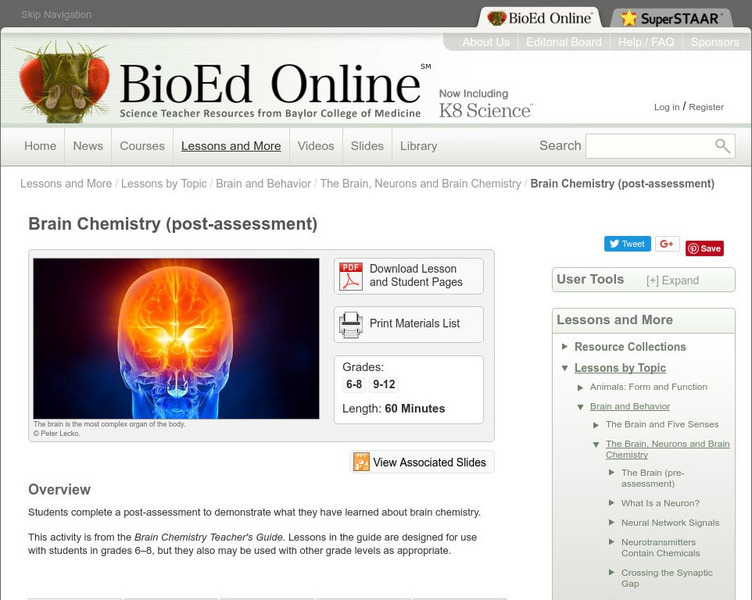

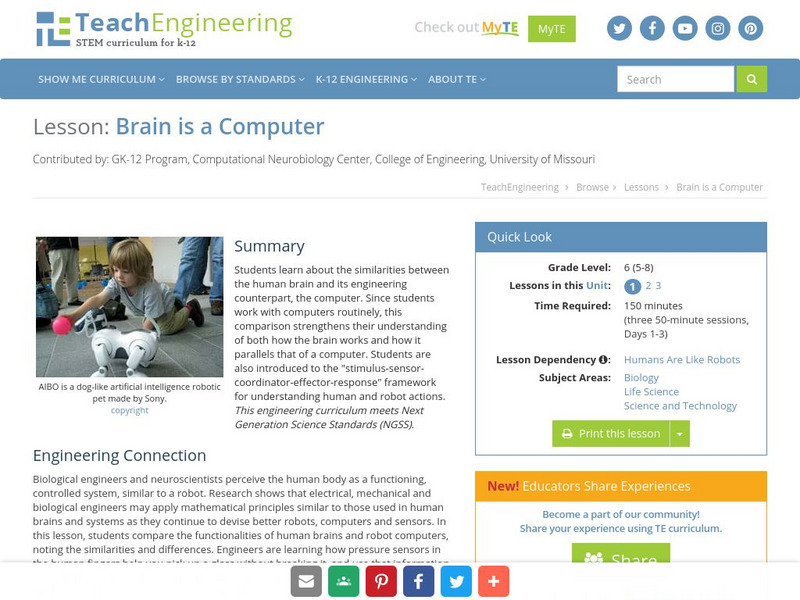




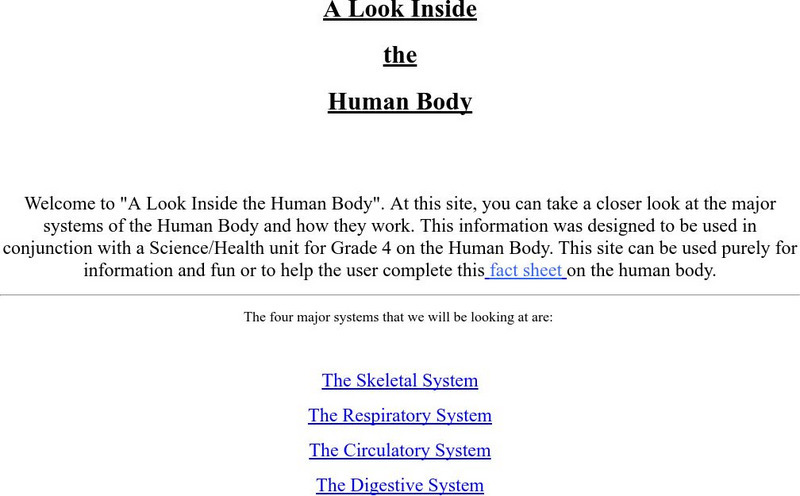
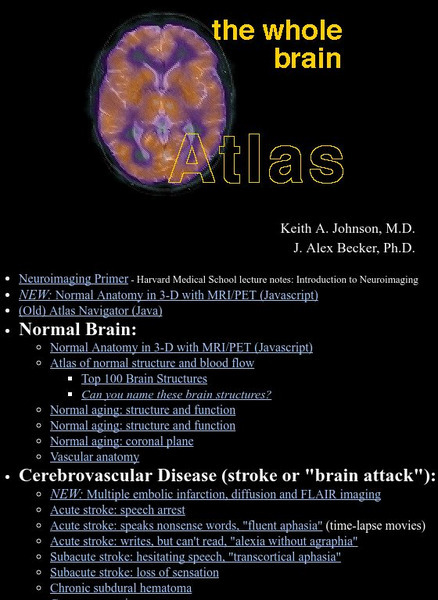
![Society for Neuroscience: Brain Facts [Pdf] Activity Society for Neuroscience: Brain Facts [Pdf] Activity](https://content.lessonplanet.com/knovation/original/113866-cd2169bec6c0105fc678c671521bd642.jpg?1661266885)




